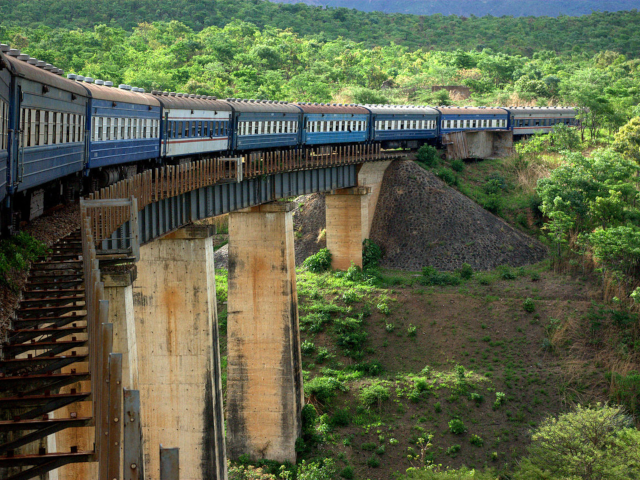The government of Zambia held a groundbreaking ceremony on Monday for a memorial to the dozens of Chinese workers who died building the Tanzania-Zambia Railway (TAZARA) in the 1970s.
China’s Ambassador to Zambia Li Jie spoke at the ceremony, hailing the Chinese workers as “heroes who sacrificed their lives in Zambia.”
“We highly value the gesture of the Zambian government and people to make this great project happen,” said Li.
The memorial will take the form of a sizable public park, promoted by both Zambian and Chinese officials as a symbol of friendship between the two countries. Ambassador Li said the TAZARA railroad should also be seen as a monument to “anti-imperialist and anti-colonial struggles, and to the development and revitalization of eastern and southern Africa.”
The thousand-mile-long Tanzania-Zambia line was constructed in about five years during the Seventies, dramatically reshuffling continental politics by making Zambia less economically dependent on South Africa and Rhodesia, from which Zambia had separated a decade previously.
The first elected president of Zambia, Kenneth Kaunda, is still alive at age 95 and was a guest at the dedication of the memorial park. Kaunda turned to China for financial assistance after unsuccessfully seeking Western backing for his planned railroad to Tanzania. Suspicions that China took the opportunity to extend Communist influence into Africa through the railroad project were similar to misgivings about China’s Belt and Road infrastructure project today.
The forbidding climate of the region and the difficulty of building the railway through the mountains of southern Tanzania accounted for many of the casualties among workers. According to Ambassador Li’s presentation at the groundbreaking ceremony, about 50,000 Chinese workers came to Africa to work on the TAZARA line and other projects. Over 160 workers died during TAZARA construction, 69 of them Chinese.
Zambia is one of the nations modern China is accused of subverting with its “debt diplomacy,” Beijing’s strategy of overwhelming Third World countries with debts they cannot repay until they feel compelled to sacrifice some of their sovereign territory to their Chinese creditors. The Zambians insist they can repay their Chinese loans and deny persistent rumors they are planning to turn over major national assets, such as Zambia’s power company ZESCO, to Chinese control.
In April, Deutsche Welle reported on growing anti-Chinese sentiment among Zambians who believe the Chinese are exploiting them for profit and stealing their jobs.
“Chinese state-controlled firms are flourishing in Zambia, winning almost every mega government project, funded not coincidentally by Beijing. Airports, hydropower stations, highways and others — such multi-billion dollar infrastructure projects have become the new signature of China in Zambia,” DW noted.
One of the major complaints from Zambians is that Chinese loans to their government are spent on projects that almost exclusively employ Chinese contractors, whose work does not always meet the highest standards of quality. Some of the projects are extravagant “white elephants” such as oversized sports arenas that seem unlikely to generate enough income to repay the Chinese loans. In essence, Zambian critics say China is effectively paying itself to slowly take over the country, with hefty bribes to local officials making government corruption worse.

COMMENTS
Please let us know if you're having issues with commenting.